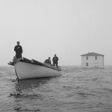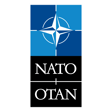Become a Creator today!Start creating today - Share your story with the world!
Start for free
00:00:00
00:00:01

How Prince Edward Island joined Canada
When King George II signed Treaties of Peace and Friendship with PEI's MI'kmaw Chiefs more than 200 years ago, the British monarch promised the Mi'kmaw people the right to hunt and fish on the island forever. But what happened to those treaties when PEI joined Canada in 1873? Historian Christopher Moore and Mi'kmaw legal scholar Cheryl Simon discuss how British law, international treaties, and the deal PEI made with Canada at Confederation have affected everything from fishing rights to property ownership in Canada's smallest province.
Transcript
Introduction and Focus on PEI's Confederation Decision
00:00:05
Speaker
Welcome to Canada's History's Stories Behind the History Podcast. I'm Kate Jaymet, Senior Editor of Canada's History Magazine, and in this podcast, we take a deeper look at some of the stories in our award-winning print publication.
Why Did PEI Initially Reject Confederation?
00:00:18
Speaker
In our June-July, 2023 issue, Chris Moore writes about the decision by the British colony of Prince Edward Island to join Canada in 1870, after they had first decided against it.
00:00:30
Speaker
Chris Moore is a contributing editor with Canada's History Magazine and a Governor General's award-winning writer who has been presenting Canadian history to a non-specialist audience for many years. Chris, welcome to the podcast. Pleasure to be here.
Indigenous Perspectives on Confederation
00:00:44
Speaker
And to give us a Mi'kmaq perspective on Confederation, I'm pleased to welcome Cheryl Simon. Cheryl Simon is a proud Mi'kmaq woman from Ibegwet and an assistant professor at Schulich School of Law at Dalhousie University.
00:00:58
Speaker
She has extensive experience in community-based policy development and has worked with First Nation communities in developing governance models based on traditional systems. Cheryl's area of research is Indigenous identity law, and she teaches Aboriginal and Indigenous law and Indigenous governance.
Mi'kmaq Governance Before European Arrival
00:01:16
Speaker
Cheryl, welcome to the podcast. Hi, Kate. Thank you for having me.
00:01:20
Speaker
I'm really happy to have both of you here today, especially because questions of Indigenous rights and Indigenous governance are so topical in Canada right now. And so since we're a history podcast, we get to go right back to Confederation, even back further before Confederation and look at the history behind some of this. So I'm really excited about that. So Confederation, you know, we think
00:01:47
Speaker
1867, right? But actually, the whole history of governance, if you want to look at governance in general on this continent, goes back way further than that. So I'm hoping Cheryl, you can give us a bit of perspective. Can you give us an idea of what sort of systems of governance and social organization the Mingma had, even before the Europeans ever arrived?
00:02:10
Speaker
Sure. Well, I think one of the founding principles to be aware of when it comes to Mi'kmaq governance is that it was kinship based. People were always looking to see how they were related to each other, how they were related to the land. And so our system of governance really reflects that.
00:02:27
Speaker
Within Mi'kma'ki, we have seven traditional districts, and those districts were basically governed by groups of people that were living together, that were related to each other, and the communities would select people to lead them that they had confidence in.
00:02:44
Speaker
that they respected and that would put the community's interest first, the village's interest first. And so when you look at the role of chief or santement in the Mi'kmaq language, it was really somebody that embodied characteristics that the people whom they were leading really valued and they only followed people that they had respect for.
00:03:07
Speaker
And so within those seven districts, the Sotmaws
European Interaction and Treaty Formation with Mi'kmaq
00:03:11
Speaker
would come together to deal with broader issues that would affect the entire Mi'kmaq Nation. But it was not a top-down system. In fact, it was the opposite. And people today always talk about the Sotmaws were the people that were the poorest in the village because if they were really well off, that meant that those that they were leading were really thriving.
00:03:31
Speaker
So there's a very different worldview when it comes to governance. It was about trust, respect, reciprocity, kinship, ties, and basically not imposing your will on a group of people. In fact, the focus is on getting mandates from people to act on their behalf, and they would only follow you if they trusted you.
00:03:54
Speaker
So did each village have its own Sotma or chief and then you had sort of higher up chiefs for each of the seven districts or how did that work? Yes, you can look at it that way. Like there was always people that would at different levels. But again, it's important to know that if we had like the Grand Chief of the Mi'kmaq Nation or the Grand Council or the Sotmas or district captains, that they weren't people that were imposing their will on people. They were people that were chosen to bring issues forward on their behalf.
00:04:24
Speaker
So sometimes I hesitate to kind of lay it out that way because people will apply a more Eurocentric view as to what a Grand Chief would have meant or a captain that was responsible for a district because of that difference in worldview. But yes, that is what happened, but it's just key to remember that it was from the bottom up when it comes to how our leadership was viewed and how they operated. Okay, that's really interesting. So then when
00:04:53
Speaker
Let's say, for example, France and England, when those people started showing up. And as you say, especially at that time, it was pretty much an absolute monarchy, right? You know, the king of France was the king and you did what the king said kind of thing. So when the Europeans came over and they were ruled by these kings and nobles and so forth, how did the interactions happen
00:05:21
Speaker
on the level of people, but also on the level of deciding what rules were going to govern the relationships between the Europeans who were arriving and then the Mingma who obviously that was their land.
00:05:36
Speaker
Well, when we're talking about the history of interaction between Mi'kmaq people and Europeans, it's important to go back further than just the British and the French. We had long traded relationships with people like the Basque, there was Dutch presidents, people that were coming over to trade. And in fact, when Cartier arrived, when he first pulled up to shore,
00:05:55
Speaker
There was Miwan people that actually paddled out in their canoes to trade with him because there already was a familiarity that European arrival meant trade opportunities. And so when the British and the French came, there already was quite a lot of period of time when there had been interaction and there was expectations with respect to how relationships would be carried out.
00:06:17
Speaker
But when the French arrived, and later the British with their absolute monarchies, it's interesting because they saw what they wanted to see with respect to our systems of governance. So if there was a sautement or a chief that represented a district, in their minds, they would have attributed the same degree of power that their own colonial authorities would have had, which wasn't the case.
Mi'kmaq Sovereignty and Peace Treaties
00:06:39
Speaker
But what people don't, I think, commonly understand is that when Europeans first arrived,
00:06:45
Speaker
The jurisdiction and the authority and the laws that were in place were very firmly under Mi'kmaq control. Europeans were interacting with Mi'kmaq people. They were learning their language, especially with the French. There was this expectation of reciprocity with respect to how their relationships would carry out. And so the protocols and the governance systems of the Mi'kmaq were really what held sway. And it wasn't until many years and many centuries later that that started to shift.
00:07:13
Speaker
That's really interesting. When the Mi'kmaq had agreements, what we might in European terms call like a treaty or an agreement or something between say maybe another indigenous group or so forth, did they have a way of sealing that? Were the Mi'kmaq one of the people who used Wampum or what way did they have of sort of formalizing agreements?
00:07:36
Speaker
Yes Mi'kmaq people did have wampum belts and they were made out of kohag shells and they depicted the the terms of that had been agreed upon and so these belts were made out of beads that were kind of like a blue purplish color and white beads and they would be woven together
00:07:53
Speaker
to represent symbols that were the terms and conditions of the agreement. And so that was definitely a way that Mi'kmaq people and the allies and other nations that they were working with would document those relationships that they were establishing.
00:08:09
Speaker
I don't want to jump ahead too much or even lead the conversation too much, because I think you know a lot more than I do about all of this. But I have read about the peace and friendship treaties. Were those the first, in a sense, written down in the sense of written down in the English or French language, treaties that existed between the Mi'kmaq and then the Europeans?
00:08:32
Speaker
Yes, it's important to understand that we had a long relationship with the French that didn't require treaties in the same way that it did with the British. The treaties that were entered into with the British were unique because they were codified, if you will, they were written down on parchment. And one of the things that really needs to be understood when you start talking about the treaty relationship is that only nations can enter into treaties.
00:08:57
Speaker
So in a contemporary context, for instance, the province of Nova Scotia or PEI, they can't enter into treaties on behalf of Canada. It has to be the federal government as Canada entering into treaty. And those components of international law applied back historically as well. So the Make My People entered into treaties with the British government and they did so as a sovereign nation.
00:09:20
Speaker
Yeah, I do think that's a really important point because it shows that the British at that point recognize the Mi'kmaq as being a sovereign nation. Otherwise, as you say, they wouldn't have signed a treaty with them.
00:09:33
Speaker
That's correct. And it's important to us realizing that to use even the phrase sovereign nation in English that, you know, that has that absolute monarchy kind of connotations behind it. So very quickly, you fall into this trap of the Eurocentric language. But yes, but the British definitely recognize the Mi'kmaq as a nation with the capacity to enter into treaties. And why did the British feel compelled or feel that it was a good idea to have this treaty? And maybe you could also explain a little bit what the treaty was about.
00:10:03
Speaker
Well, the first treaty between the British and the Mi'kmaq was entered into in 1725, and primarily it was about maintaining peace, which is why today we call them the Peace and Friendship Treaties. And they really encompassed the entirety of the 1700s, from 1725 all the way up until the 1780s.
00:10:24
Speaker
So the first treaty that the Mi'kmaq entered into with the British in 1725 was about keeping the peace. Wars are expensive. Nobody likes them. They disrupt trade. They cost a lot of money. Settlers do not want to come into territory that is actively in war. And what happened was is that when the British and the French at the end of their war, in terms of jurisdiction over Atlantic Canada,
00:10:50
Speaker
The British then were the sovereign European nation that was at play in the Maritimes. But that did not mean that there had been an eradication of Aboriginal title, of Aboriginal rights, and Indigenous law was then subjugated. What that meant was that the European nation that was at play in the Maritimes was the British crown.
00:11:12
Speaker
And because they did not have a long allied relationship with the Mi'kmaq, that was one of the reasons why a formalized treaty was required because the Mi'kmaq had been allied with the French. The French and the British were traditional enemies. And so in order to establish peace that was in both nations best interest, a formal treaty was required.
00:11:36
Speaker
And what did the Peace and Friendship Treaty
Indigenous Legal Systems vs. European Colonization
00:11:38
Speaker
say? And you know what, I'm gonna put a little addendum to that question because something that I learned recently when I was reading a book about the Stone Fort Treaty, which is out west, and I think this was a really insight for me, so I'll just mention it for our listeners, was that whereas the Europeans regard a treaty as what's actually written on the piece of paper, like that's it, that's the treaty,
00:12:03
Speaker
I think what was explained was that for indigenous nations coming from a long oral history, it was also what was spoken, what was said, what was said verbally, what was maybe rituals or smoking of the peace pipe, those were all part of the treaty. So they had a sort of broader understanding of what treaty was, not just what was the words on the exact piece of paper. So I don't know if that also applies in the Mi'kmaq context, but
00:12:33
Speaker
maybe you could explain what the treaty meant from a broad perspective. Sure. So you're absolutely correct with that assessment of treaties encompassing more than just the written words. And in order to understand that, it's important to realize because all of those other components that you're talking about in terms of the feasting, the ceremonies that would have been undertaking, the verbal negotiations and agreements before things have gotten codified,
00:12:59
Speaker
A lot of those were, again, governed by Indigenous governance protocols. Our legal system required that type of activity in order to have a valid agreement. So, for instance, when you have an oral society, having a feast, the bigger the feast often really drove home the importance of the business that was being undertaken.
00:13:20
Speaker
So if you have a big feast, it's important business and it creates living memories in people's minds. And so that is one of the mechanisms and the foundations of our governance systems. And so all of that activity is critical to understand what was agreed to and what the common understandings were.
00:13:37
Speaker
So when the Mi'kmaq treaties were entered into with the British, with the first one being in 1725, it was really about establishing a working relationship to figure out how the Mi'kmaq and their allies and the British were going to work out disputes
00:13:55
Speaker
whether or not consent was going to be required for settlement and to really protect and recognize the way of life of the Mi'kmaq people. Because again, it was our governance systems and our legal orders that were running the territory that the British found themselves on.
00:14:12
Speaker
And so there were, because this was a new working relationship, there were disputes that broke out in later years. And so what happened was every time a dispute would break out and the working relationship wasn't functioning properly, they would get back together again to work again and reaffirm their working relationship to resolve disputes. And then they would continue moving forward.
00:14:35
Speaker
So this is why they call it a covenant chain of treaties, the peace and friendship treaties, plural, because it covered off a lot of different agreements that built upon each other and built upon the working relationship as disputes came about and to try to settle things in a way that would avoid war.
00:14:54
Speaker
The Mi'kmaq treaties, unlike those that would come later in the West, did not deal with land. There was no land surrender or anything like that. It was more about maintaining trade links, about containing settlements that required Mi'kmaq consent before more settlements could be created. And then again, the working
00:15:18
Speaker
to protect the activities that Make My People had, the harvesting, the fishing, everything that was taking place in the territory. OK, that's really interesting. I'm going to bring Chris in. Hi, Chris. Hi there.
00:15:32
Speaker
Cheryl was talking about the end of the war between Britain and France over which colonial power was going to be predominant in North America. And as we know, the Brits won that one. That was the Seven Years' War. And Chris, you write in your story for us in Canada's history something really fascinating about the history of
00:15:53
Speaker
a baguette, which is the Mi'kmaq name for Prince Edward Island. But that when the British said, OK, great, we've just conquered the French, we're going to come in and take over Prince Edward Island. They basically carved it up. Can you explain that, Chris? What did they do? Yeah, Prince Edward Island became unlike almost all the all the other colonial settlements in in North America, at least by the middle of the 19th century.
00:16:18
Speaker
because when the British took over in the mid, in the 1760s, they took the whole island as if it was a blank slate and nobody lived there and divided it up into 67 big chunks of land of I think about 80,000 acres each and doled them out to British military officers and
00:16:45
Speaker
lords and ladies living in England and friends of the king and
Impact of British Colonization on PEI's Social Dynamics
00:16:49
Speaker
members of the court and they became the landlords of each of these 67 slices of land in Prince Edward Island and it was decided that anyone who came from Europe to settle in Prince Edward Island
00:17:03
Speaker
would become a tenant of one of these 67 landlords who'd been effectively given the whole island. And that continued down to the Confederation period, basically 100 years later in the 1860s.
00:17:18
Speaker
And in fact, it became a really profound political issue among the settlers of Prince Edward Island for decades. It was definitely a burden on the economy of the colony because money was being sent off to these absentee landlords who lived in High on the Hog in Britain or wherever. And it meant that whereas most
00:17:45
Speaker
people who came to North America and opened up a farm somewhere, assumed they were the owners of the land, leaving aside the question of who had the right to tell them they were entitled to own land. But in Prince Edward Island, if you were a farmer, you had a land lease that was going to bind you for 999 years, you and all your descendants, and you would pay rent on your farm to these landlords for 999 years.
00:18:13
Speaker
I was writing an article about why Prince Edward Island joined Confederation in 1873 rather than in 1867, which we think of as the great big date of Confederation. And it's a complicated question, but for Prince Edward Island, again, it wasn't so much about who was gonna pay for the hospitals and who was gonna raise the taxes. It was very much about this land question. What were we gonna do about
00:18:38
Speaker
the fact that most Prince Edward Islanders were tenants who had another 800, 900 years to go on their leases before they'd ever get free of them. So it becomes a kind of down to earth question rather than abstracts of constitutional theory. That's really true. So where in this whole idea of carving up Prince Edward Island, where did the Mi'kmaq fit into this? Or did the British even consider that when they decided to do this thing?
00:19:08
Speaker
No, the British did not consider the Mi'kmaq when they did this. I think this is a perfect example of the Europeans implementing the doctrine of Terranolius. This idea that the land was vacant, that they could just divide it up into six to seven lots and carry on as if there was no other interest that needed to be considered.
00:19:29
Speaker
And it's actually interesting that when those 67 lots were surveyed and recorded, the island of Lennox Island, which PEI is a reserve today, and one of the larger Mi'kmaq communities, it was a clerical error that actually made that island not be part of one of those 67 grants. And so there was somebody that once said that a lot of Mi'kmaq families always came through Lennox Island, and that was one of the reasons, because due to human error,
00:19:57
Speaker
that island was not part of those crown grants. That's really amazing.
00:20:02
Speaker
Apart from that one island though, did the Mi'kmaq people just basically continue living their lives? So you had this one system on the one hand where it was carved up and there were these landlords and there were people starting to farm. And then you had the Mi'kmaq who were just like, okay, well, we're just living our lives here. Absolutely. And you definitely see Mi'kmaq families because the settlement patterns really went from East to West. So you see Mi'kmaq families being repeatedly removed.
00:20:29
Speaker
and and moved on and complaints from settlers to colonial authorities that the Mi'kmaq people were here on their quote their land um and and were problematic but there was no land set aside by the colonial authorities for Mi'kmaq people so even though again on the ground we were there we were carrying out our our activities we were living our lives the way we always had to the government we were not I think you can see here that the conflict
00:20:57
Speaker
that goes way back and very deeply between the treaties, the peace and friendship treaties, which guarantee the Mi'kmaq the right to hunt and fish and put together a livelihood right across their territory against the British assumption that they could just divide up the land so that
00:21:15
Speaker
As Cheryl said, the Mi'kmaq on Epiguet on Prince Edward Island were expecting to be able to continue to hunt where they needed to, to fish where they needed to, and simultaneously there's this imposition of the new boundaries of property that the colonial government's putting up.
00:21:36
Speaker
As I understand it, as my informants were telling me, and I think as Cheryl's making clear, the Mi'kmaq would expect to deal with that through the treaty relationship. They have a right to hunt and fish. How are we going to fit that in with your idea of letting these landlords own all the land? And so you can't separate the treaty history from the Confederation history, if you like. They keep bumping into each other.
00:21:59
Speaker
And the government actually, because there were conditions on the grants on the 67 lots that the settlers had to fulfill. They had to set aside so much land for glee lands for the churches. They had to bring over so many settlers that were of the Protestant faith, all these types of conditions. And the government definitely acted as if those conditions were fulfilled.
00:22:21
Speaker
There wasn't any questioning whether or not, one, the French had title to transfer to the British, as the starting point, because there was actually nothing under French law that would extinguish indigenous title to Abigail. So that was the first assumption. The second assumption was that it was vacant, that they could divide it up into lots. And then moving forward, there was the assumption that these lots, with all these conditions attached, had been fulfilled and were therefore valid.
00:22:50
Speaker
And none of that was actually accurate.
00:22:53
Speaker
Chris, we're gonna jump ahead here just for a second to the 1860s. So we're getting close to Canadian Confederation. Can you explain to me a little bit what was the situation on the North American continent with the British colonies and the United States of America? And what were the factors from the point of view of the premiers of these provinces or British colonies that were pushing them toward thinking about Confederation?
00:23:21
Speaker
Sure, there's a bunch of factors and usually the landlord and tenants on Princess Island is not one that the history books have emphasized, though it is one, and quite an interesting one. But, you know, this is well after the American Revolution. The United States is a growing concern and getting bigger and bigger and has recently been involved in its civil war, this enormous conflict. And at the same time, there are these
00:23:50
Speaker
British colonies across the northern half of Eastern North America. Separate colonies started up in their own way. What's now Quebec having won beginnings. Various colonies having been founded in what's now the Maritime Provinces.
00:24:07
Speaker
They're getting to the point that they're big enough and prosperous enough that they want to run their own affairs. And in fact, largely the little separate colonies do. But they're beginning to think that being a group of separate colonies isn't very efficient, isn't working very well for them. And so the first impetus is, why don't these separate colonies, the ones that become the provinces like Ontario and Quebec and the Maritime Provinces and Newfoundland as well,
00:24:35
Speaker
if they federated, if they joined together into a single government where there was one government for the big national concerns and there were
00:24:46
Speaker
the old colonial governments would become provincial governments, that that might be an efficient way to do it. Some concern about the United States, the United States Army had become enormous and very powerful, and if these American ideas about manifest destiny in the United States should control the whole of North America started happening, Canadians needed to think about how to stand up to that.
00:25:09
Speaker
There were economic ideas that they could trade together, they could afford to build things like railroads that connected them. So there's a whole group of conditions that begin making people, making political leaders of the settler colonies in what's now Eastern Canada in effect, or from Ontario at least, to say we could function better as
00:25:35
Speaker
has one nation running our own affairs with provinces remaining to handle things of local concern and that are better handled locally. So that's the big background. And these meetings that are the famous meeting in Charlottetown and the later one at Quebec City are usually seen as
00:25:55
Speaker
drafting a number of clauses of what becomes our Constitution, a legal document and squabbling over the legal terms. And those are important. I've written about those kind of things sometimes, but I think there are also many local concerns that needed to be worked
Confederation's Oversight of Indigenous Rights
00:26:11
Speaker
out. So I think once we begin opening up Confederation to think about
00:26:15
Speaker
its impact on indigenous people and First Nations and where the treaty is feeding into that. We also can open it up to think about local issues for settlers like the farmers of PEI, the tenant farmers who were saying we've got to do something about this situation of ours and if we can't do that we're not very interested in this idea of making a new capital up in Ottawa and that kind of thing.
00:26:37
Speaker
Yeah, if you look at the premier of PEI in the sense that Cheryl was talking about is maybe a representative of his people rather than someone who's trying to represent the British crown down to them, but trying to bring the questions forward that were affecting the tenant farmers, he was trying to say, if we're going to confederate, I want you to help me solve this problem of these British landowners who are basically parasites on PEI.
00:27:07
Speaker
And what I found most interesting about that is with this domestic issue among the settlers of Prince Edward Island, they'd been struggling and fighting for decades to solve the tenant problem. Effectively, the tenants didn't want to be tenants anymore. They thought they should have the right to be able to acquire their land. And they'd had quite a lot of political success. They'd elected governments that kind of agreed with them.
00:27:35
Speaker
Essentially, the landlords had property law on their side, and they had the government back in Britain on their side. And even if the landlords might have been willing to sell, little Prince Edward Island really didn't have the money to be able to buy them all out at the value of what the landlords thought their lands were like. So Prince Edward Island had
00:27:56
Speaker
kind of an insoluble problem before Confederation, you might say. And it's really the new Canadian government expressing some willingness to kind of step between the Prince Edward Island and the British government, which essentially backed the big landlords. That began to turn, one of the things that began to turn Prince Edward Island around. So Prince Edward Island joined Confederation in 1873
00:28:23
Speaker
And in 1875, they were able to pass a bill for the mandatory purchase of the biggest states and a process to, in effect, resell them to the tenants who would have a mortgage for a while to pay the cost of the land, but would become landowners like people in all the other parts of Canada that really, I would argue, had a big part of sealing the deal.
00:28:45
Speaker
I'm going to interrupt you for a sec because I want to jump back to the Confederation conferences in the 1860s. The premiers all got together, Sir John A. Macdonald and Cartier and everybody all got together. Now, did they invite any of the First Nations leaders to any of these conferences? Well, I think you've got to ask what table they're at and what table they're being invited to.
00:29:14
Speaker
Cheryl's description of the Mi'kmaq governments and the profound importance of the treaties they'd made in the crown. The table that the First Nations of North America wanted to be at was always a treaty table. I think you could say they already had their governance in shape as Cheryl described. They saw themselves as self-governing sovereign peoples and nations
00:29:38
Speaker
And if the settlers' governments were beginning to reorganize themselves, it wasn't so much that they needed to be at that table.
00:29:49
Speaker
they should have been, but that table was how the settlers were going to organize their affairs. For the self-governing nations that were the First Nations of what is now Canada, their perspective was what matters was the treaties. The way we deal with the Crown or whether it's the Crown of Britain or the Crown of Canada or the sovereign or the governments of these provinces, we should be dealing with them through as sovereign nations, nation to nation, as Cheryl said earlier,
00:30:17
Speaker
How do you see that Cheryl like if you look back on the confederation conferences where the premiers all decided to get together and talk about confederation. When you look back at that do you think why weren't the Mi'kmaq invited or were they working on a different track where they were like why should i talk to these provincials i'm gonna go talk to the king how do you see that.
00:30:36
Speaker
I think that the treaty implementation is really the crux of the question because really when you look at the late 1700s, when the treaties were, like the final treaties were being entered into, the issue of implementation had already started to be an issue.
00:30:52
Speaker
um pretty much the moment the ink starts to dry there started to be some violations and so you see Mi'kmaq people according to the treaty as they were they were supposed to do petitioning the colonial authorities you know we we need to resolve these issues settlements are going forward without our consent um there are issues here and again this is why a lot of hostilities kept flaring up was because the settlers were not implementing the treaties with
00:31:15
Speaker
in the manner in which they were supposed to. And they weren't implementing them according to the law that they had agreed would be applying to the treaties. So you see a lot of petitions to the colonial authorities, delegations being sent to England for implementation, recognition of these treaty rights and implementation. But one of the biggest issues had to do was the idea of the military threat, right? The Mi'kmaq people and Mi'kmaq Nation were required to be allies to the military threat
00:31:45
Speaker
and they needed that piece. So when the threat started to go down, the colonial authorities in the Maritimes didn't see that as something that was worth their bother anymore. I don't think that they even would have contemplated the idea that there were Mi'kmaq issues that were outstanding. As far as they were concerned, the land had been emptied out, British law had filled the void that was required to entrench property rights. And so it was not something that would have ever been on their radar.
00:32:15
Speaker
in terms of any kind of obligation under the treaties. And so I don't know whether or not Mi'kmaq people would have expected to be there because as Chris was saying, the issue was the treaty implementation. The fact that nobody was considering Mi'kmaq interests really reflected a lot of notions regarding social Darwinism, all these ideas about hierarchies of man, all these other kinds of components with it. And I just don't think that the Mi'kmaq people would have expected
00:32:43
Speaker
expected to be there, but whether or not their issues should have been taken into consideration by the British Crown generally, they absolutely would have expected that obligation to be upheld because people have been fighting for treaty implementation ever since the treaties got signed.
00:33:00
Speaker
There's a story that I had never heard until I started writing this article about Prince Edward Island, and it was told to me by the people I was interviewing, my Mi'kmaq informants on Prince Edward Island. And they put me on to one of the studies by Ruth Holmes Whitehead, the great, maybe the preeminent Mi'kmaq scholar and collector of
00:33:21
Speaker
of information on all these matters. And she has documented, Ruth Holmes Wade had documented quite a while ago, at the time that the makers of Confederation were having their conference and such, the Mi'kmaq of the Maritimes became concerned about what the implications of this might be for them.
00:33:40
Speaker
And they actually gathered money, and these were not wealthy people, they gathered enough money to send one of their people, send a delegate, in effect, to London, not to Charlottetown or Quebec City, to London to talk to the colonial office. And what they said is,
00:33:56
Speaker
you know, the settlers are talking about a new kind of government, we want to know what the impact on that is going to be on our treaties. And the British government said, there's going to be no change in your treaties, your treaties exist, and they're going to have to continue. And I think
00:34:16
Speaker
This is really at the nut of a lot of Canadian history, not just in the Maritimes, but this is a very good example of it. You know, when the British North America Act was written down, there is one tiny line saying that Indians and lands belonging to Indians are going to be a federal responsibility. And I would argue that that essentially acknowledges that the treaty relationship has not ended. The lands belonging to Indians were governed by treaties before Confederation.
00:34:44
Speaker
And I think that says the Canadian government took over that, took on that obligation and that responsibility. And of course, so the existing treaties continued and then Canada went on to make more treaties in other territories that it was expanding into. And I think that's, so on one hand, the Confederation goes with taking up of the treaty obligation by the emerging Canadian state. And yet we all know that
00:35:14
Speaker
that state really defined these treaties not as ongoing relationships, but as simply as land surrenders. And it was assuming that once the treaty is signed and made
00:35:28
Speaker
It's all over. The land all belongs to Canada. The sovereignty belongs to Canada. Canada can do whatever it likes with the land and virtually with the indigenous people who live on that land as well. So we have this weird two tracks that on one hand, the treaty obligation, I think, is built right into Confederation. And yet, essentially, it was ignored. And what we're having right now, I think, is really a revolution in understanding that
00:35:54
Speaker
the treaties didn't go away once they were signed. They remain binding and they involve the use of land and control of land and indigenous self-government just as they did in in 1725 or 1752 or whenever the peace and friendship treaties were being made. So I think what's happening in
00:36:16
Speaker
Canada, as a result of this claim or demand or proposition for reconciliation, is we're beginning to have to confront that treaty obligation that I think is embedded in the Confederation settlement. And how do you see that, Cheryl? I would agree with that, that the treaty relationship is embedded in the Constitution in 1867. And when you go back to what I was saying about how the nations, that only nations could enter into treaties,
00:36:45
Speaker
that that role and the importance of the treaty relationship is illustrated by that one line Indians the lands reserved for Indians that's a federal jurisdiction and the reason why that is is because issues of maintaining peace of international treaties that were entered into.
00:37:04
Speaker
that had to be in the jurisdiction of the federal government. No province has that authority then or today. And so in order to recognize the treaty obligations and the existence of the treaties, which the colonial authorities absolutely did at the time of Confederation, it was required to be a federal head of power. The legalities of that treaty did not go away.
00:37:26
Speaker
And so you cannot have provinces responsible for it as much as they would like to. It was felt at the time of Confederation that if you had responsibility for the Indigenous peoples at the provincial level, they would be too likely to be swayed by the local interests of the people that were living within the province. And that was too detrimental to the international legal obligations that Canada had as a trading partner.
00:37:53
Speaker
which was recognized by the colonial authorities in London. That's really, really interesting, and I never thought of it that way. And in a way, that very first time when the Brits carved up PEI, and at the same time totally ignoring the Mi'kmaq, but at the same time said, oh no, we respect your treaty rights, right from that moment, that irreconcilable situation
00:38:20
Speaker
is still playing out today in some ways, right? And especially with property rights being such a high issue and priority on PEI, a confederation, because like I said, there was no land set aside for the Mi'kmaq people on Everglit.
00:38:36
Speaker
The reason why our reserves, I would argue, are so beautiful and pretty is because they were purchased by private citizens for the Mi'kmaq. People came together, raised funds, they were concerned about the, quote, plight of the Mi'kmaq people. And so they wanted action and, I guess, resolution to this issue as well. It was only in the later in the 20th century when they were recognized as reserves.
00:39:00
Speaker
But initially, the land that Mi'kmaq people were occupying that they had some sense of title to was because of private citizens. So this idea that nobody recognized Mi'kmaq rights, that nobody was willing to work on behalf of Mi'kmaq people or were concerned about the implementation of the treaties is just not correct.
00:39:22
Speaker
These types of decisions and colonization were a series of decisions that individuals made, and we cannot assume that all individuals have the same perspective with respect to Mi'kmaq rights.
Decolonization and Reconciliation Today
00:39:34
Speaker
It's so good to have the discussion, and I think we could probably talk for a few more hours, but I'm just going to wrap up with a bit of a final question.
00:39:44
Speaker
We talk a lot about decolonization. I'm not sure I understand all the ramifications of what that word means. I think it's interesting in the PEI context in the sense that when those tenant farmers got rid of the landlords by having confederation by Canada, like you said, the federal government stepping in in a sense between the British crown and PEI and saying, you know, okay, we're a nation now, we're going to solve this and got rid of these.
00:40:11
Speaker
landlords, in a sense that was a sense of decolonization for the people, for the tenants. And now we talk much belatedly about decolonization regarding Indigenous people. I'm just going to throw a question open-ended out to both of you. With sort of all that in mind and all we've talked about, do you think that the place of First Nations within the Constitution and within the governance of Canada is going to change? And how do you see that maybe playing out?
00:40:42
Speaker
If I go first and give you the last word, Cheryl, I've been so impressed. I've been written about different parts of Canada, and so I've talked to various First Nations scholars or spokespeople in various places. And this phrase keeps coming back. Well, two of them really. One is, we're all treaty people, not just sort of the Indians are bound by treaty. My white people are bound by treaty, too.
00:41:04
Speaker
which is a very useful thought to keep in mind. But that other phrase, nothing about us without us, that is also used by First Nations negotiators and First Nations people. And I think more and more we're starting to understand how that much applies to the way we should think and conceive of Canadian history. So you start to understand Confederation differently when you become aware of this treaty aspect to it.
00:41:30
Speaker
It's the same whether you talk about Prince Edward Island and the local affairs in Prince Edward Island or whether you talk about the whole constitutional structure. Once you begin understanding that none of these things happened without without Indigenous consequences and without Indigenous pushback, you begin to understand the process was not as simple as you may have thought it was. I think that's an idea that's that's percolating through
00:41:57
Speaker
a little bit into the Canadian consciousness right now. And I think it would be a good thing if that continues to happen.
00:42:04
Speaker
When I think about decolonization and in terms of trying to reconcile some of these issues about Canada's history and indigenous rights and our treaty implementation, there's a few things. We have to have the truth before we can have reconciliation. I mentioned earlier that the settlement of PEI was based on fiction, several fictions that were layered upon each other to justify
00:42:28
Speaker
the settlement and the way that people wanted it carried out. But I also would want to challenge Islanders because their ancestors fought so long and hard to get rid of these aristocratic landlords that were having such a huge impact on their life that they had no say in the matter, the level of frustration, not being able to have autonomy. All of that fight
00:42:55
Speaker
I understand because it was something that they had seen back home. People were leaving Europe, that type of system of property ownership where we always had an overlord. But the problem was that when they came to PEI, they fought so hard for property rights and they never stopped to think that it wasn't their land to begin with.
00:43:14
Speaker
So if you take those legal fictions and you take that understanding of the fact that the fight for nationhood, the fight for autonomy, the fight for rights to be fully implemented, that is something that I think that all Canadians and Islanders should be able to understand. And that is what is at issue today when we're trying to reconcile those legal fictions
00:43:39
Speaker
with the continual existence of the Mi'kmaq Nation in Canada. Because I don't blame the Europeans for having fought so hard for their property. I just don't understand why they don't understand our fight for our nation. I really don't.
00:43:54
Speaker
We talk about the constitution, the BNA Act as being, you know, okay, the provinces have responsibility for natural resources and the federal government has responsibility for the army or whatever, right? They sort of laid it out. Do you think it needs to be laid out in a constitution type document? Like, okay, but the First Nations should have responsibility for XYZ. Should that actually be written into the constitution itself in addition to what's in the treaties?
00:44:23
Speaker
I think that the text of the Constitution needs to be reevaluated.
00:44:32
Speaker
Indians and lands reserved for Indians, meaning absolute jurisdiction and control, that it turns to support for treaty implementation because it's a federal responsibility. That is what needs to happen. They need to give up this idea of control and jurisdiction because there's a different legal order, there are different governance systems, and there's a whole body of international law that supports the treaty implementation of the Miwa people on PEI.
00:45:01
Speaker
And so I think that if constitutional amendment is not possible, and I would argue with our amendment formula, it's extremely difficult, that we have to reimagine the interaction between the Canadian government and First Nations people. The tools are already there, which we just need to get the political will to actually go back and implement the treaties that the government said that they were going to.
00:45:27
Speaker
I think I will let you have the last word on that, Cheryl. So I'm going to thank you both for joining me today and hope we can maybe meet again sometime and talk more. It's been a pleasure. Thank you so much, Kate. It was wonderful to be here. The Stories Behind the History podcast is produced by Canada's History Society. If you enjoyed the podcast, why not subscribe to Canada's History magazine? To subscribe or simply to find out more about Canada's History Society, visit us at canadashistory.ca.
00:45:57
Speaker
Our theme music is the Red River Jink performed by Alex Custerwock. From his album, Metis Fiddling for Dancing. I'm Kate Jamit, Senior Editor of Canada's History Magazine. Thanks for joining me.












